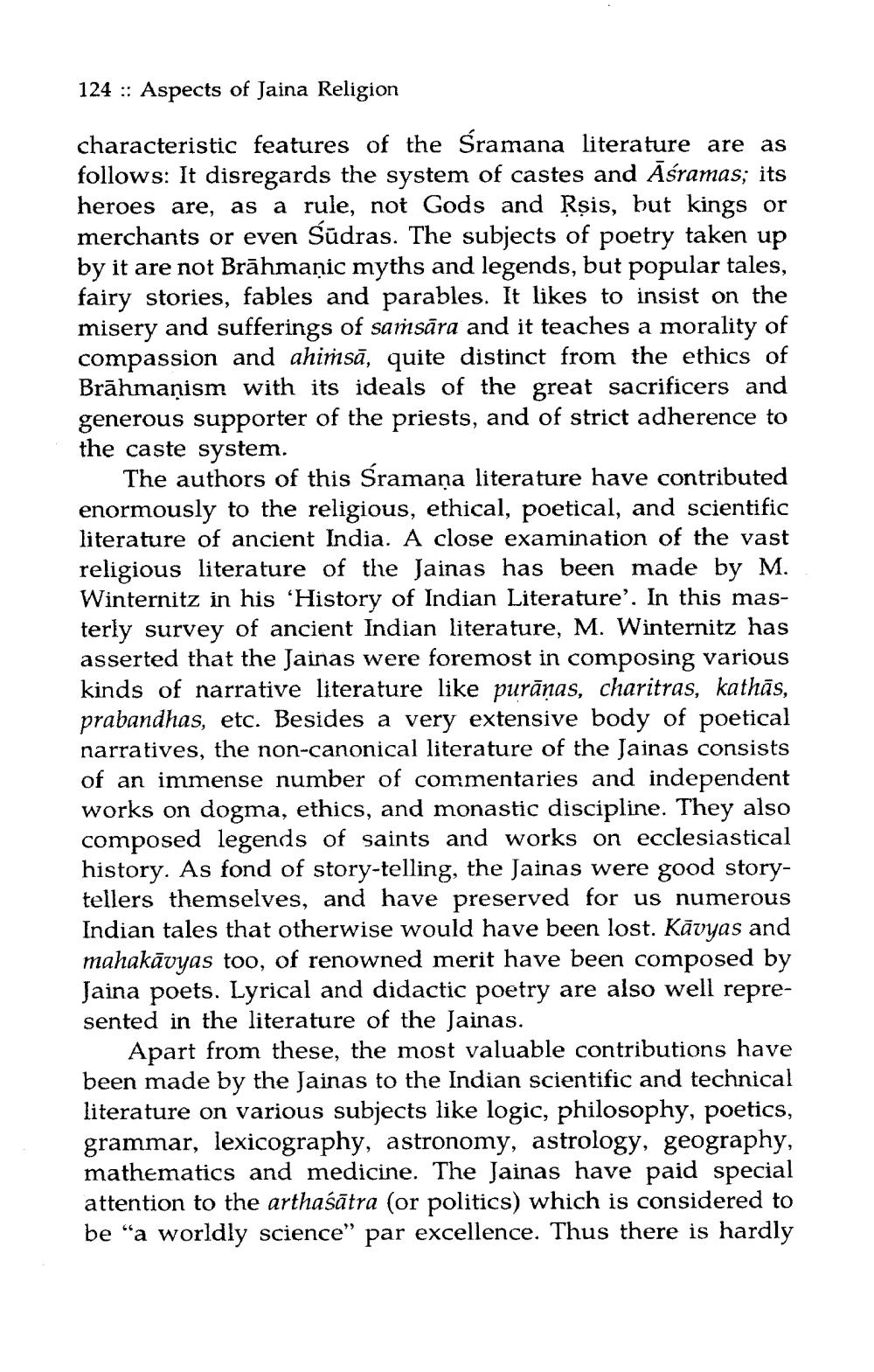________________
124 :: Aspects of Jaina Religion
characteristic features of the Sramana literature are as follows: It disregards the system of castes and Aśramas; its heroes are, as a rule, not Gods and Rșis, but kings or merchants or even Sūdras. The subjects of poetry taken up by it are not Brāhmaṇic myths and legends, but popular tales, fairy stories, fables and parables. It likes to insist on the misery and sufferings of samsāra and it teaches a morality of compassion and ahimsā, quite distinct from the ethics of Brāhmaṇism with its ideals of the great sacrificers and generous supporter of the priests, and of strict adherence to the caste system.
The authors of this Sramana literature have contributed enormously to the religious, ethical, poetical, and scientific literature of ancient India. A close examination of the vast religious literature of the Jainas has been made by M. Winternitz in his 'History of Indian Literature'. In this masterly survey of ancient Indian literature, M. Winternitz has asserted that the Jainas were foremost in composing various kinds of narrative literature like purānas, charitras, kathās, prabandhas, etc. Besides a very extensive body of poetical narratives, the non-canonical literature of the Jainas consists of an immense number of commentaries and independent works on dogma, ethics, and monastic discipline. They also composed legends of saints and works on ecclesiastical history. As fond of story-telling, the Jainas were good storytellers themselves, and have preserved for us numerous Indian tales that otherwise would have been lost. Kāvyas and mahakāvyas too, of renowned merit have been composed by Jaina poets. Lyrical and didactic poetry are also well represented in the literature of the Jainas.
Apart from these, the most valuable contributions have been made by the Jainas to the Indian scientific and technical literature on various subjects like logic, philosophy, poetics, grammar, lexicography, astronomy, astrology, geography, mathematics and medicine. The Jainas have paid special attention to the arthaśātra (or politics) which is considered to be “a worldly science" par excellence. Thus there is hardly




